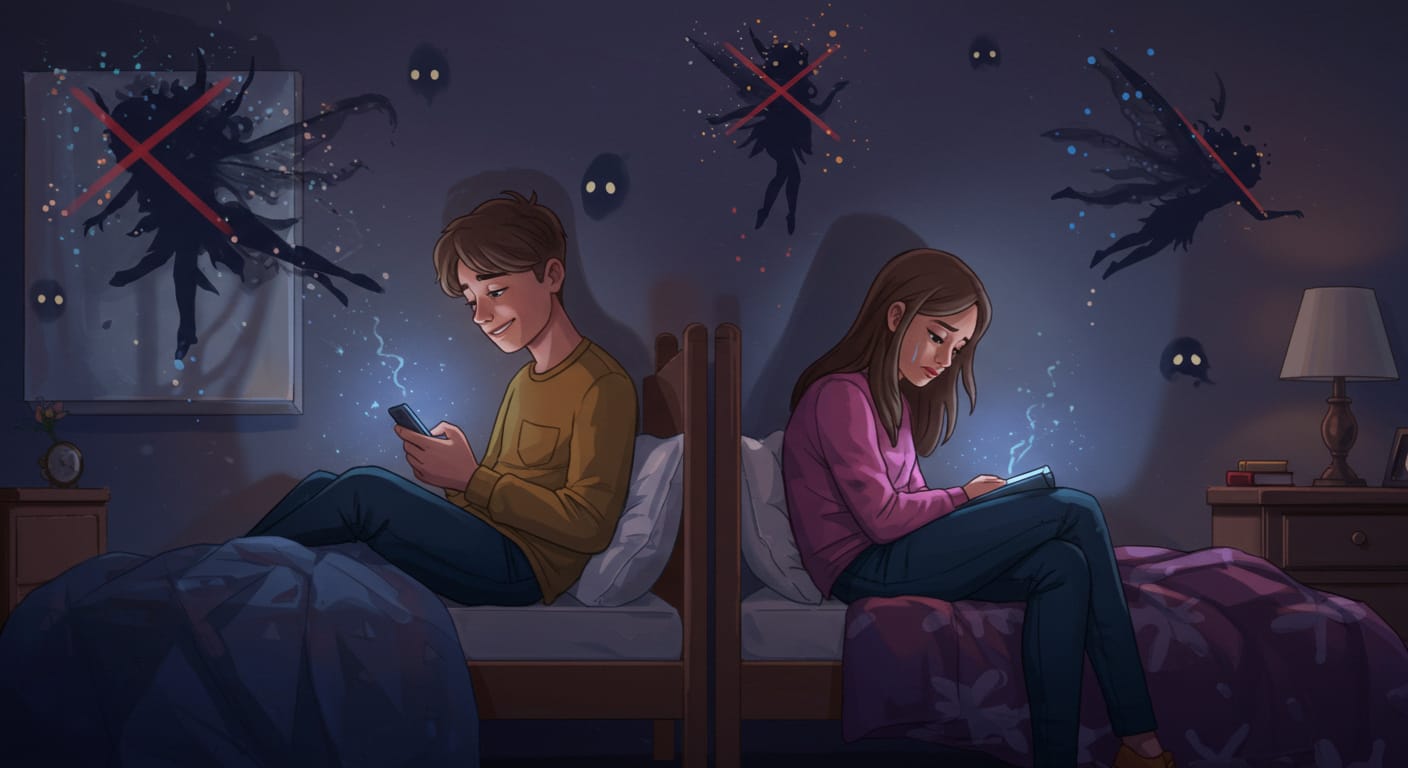The Fairies Can’t Cure Your Child
Teenage depression is real, and no amount of denial, superstition, or sugar-coated myths will erase its impact. As mythologist Joseph Campbell once said:
“Myth is what we call other people’s religion.”
In many households, cultural beliefs and parental denial block early diagnosis and support. One high school teacher told me of a parent who brushed off her son’s troubling behavior:
“It’s just mood swings—they’re normal for teenagers.”
But the teacher saw something deeper. Unfortunately, the mother—like many—was not ready to accept the possibility of teenage depression.
Facing the Facts: What Every Parent Needs to Hear
Too many myths are passed off as truth, and it’s costing our teens their well-being—even their lives. Below are 15 facts and myths you need to know:
🔎 15 Teenage Depression Facts & Myths
-
Myth: Depression has one cause.
Fact: It stems from a mix of psychological, biological, social, and emotional factors. -
Myth: Mental illness only affects white teens.
Fact: Depression affects all races and cultures—no one is immune. -
Myth: “It’s just a phase.”
Fact: Depression is the third leading cause of death among 10–24 year olds in the U.S. -
Fact: Adolescent depression occurs in 4%–7% of teens.
-
Fact: If left untreated, depression can lead to disability or other mental health disorders.
-
Fact: Depressed teens often show changes in appetite, sleep patterns, focus, and motivation.
-
Fact: Anxiety and depression frequently co-occur in teens.
-
Myth: “My teen is happy and popular—they can’t be depressed.”
Fact: Many teens mask their depression with smiles and social behavior. -
Myth: “If my child were depressed, they’d cry a lot.”
Fact: Some depressed teens avoid crying out of fear or shame. -
Fact: Depressed teens lose interest in activities they once loved.
-
Fact: Depression can run in families. A parent’s or grandparent’s mental health matters.
-
Fact: 1 in 100 teen girls will experience depression by age 17 (Source: Translational Psychiatry).
-
Fact: Depression affects 3x more girls than boys during adolescence.
-
Fact: Girls face more emotional and social pressure, and hormonal shifts make them more vulnerable.
-
Fact: Depression is treatable! With therapy, medication, and support, teens can recover and thrive.
💬 So What Can You Do as a Parent?
-
Start by listening—without judgment, without trying to “fix” them.
-
Break free of myths. It’s not about bad parenting or weakness—it’s about health.
-
Seek help early. A combination of psychotherapy, interpersonal therapy, and, if necessary, antidepressants (under professional guidance) can make a huge difference.
“Support, not solutions, may be exactly what your child needs most right now.”
✅ Final Thought
Don’t wait for a crisis. If your child seems “off,” don’t dismiss the signs. Educate yourself. Get involved. Depression isn’t a moral failing or a parenting error—it’s a medical condition.
There is hope. There is help. There is healing.


